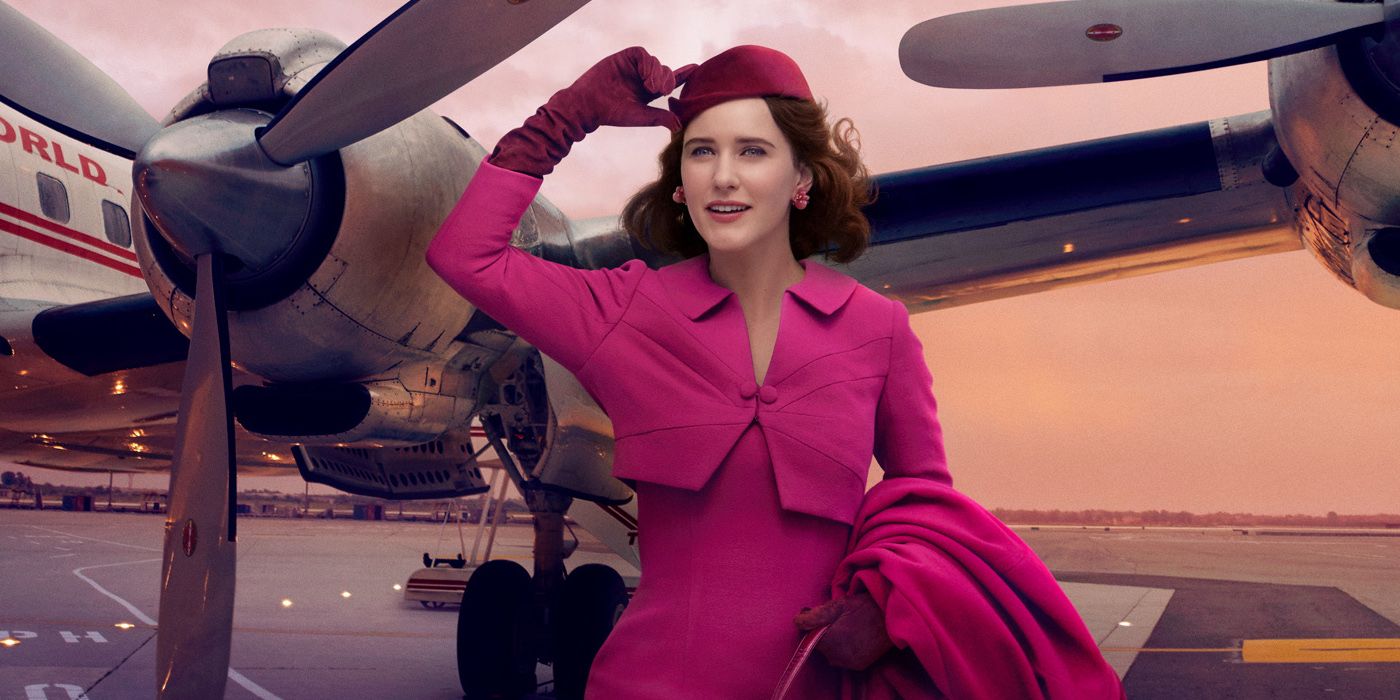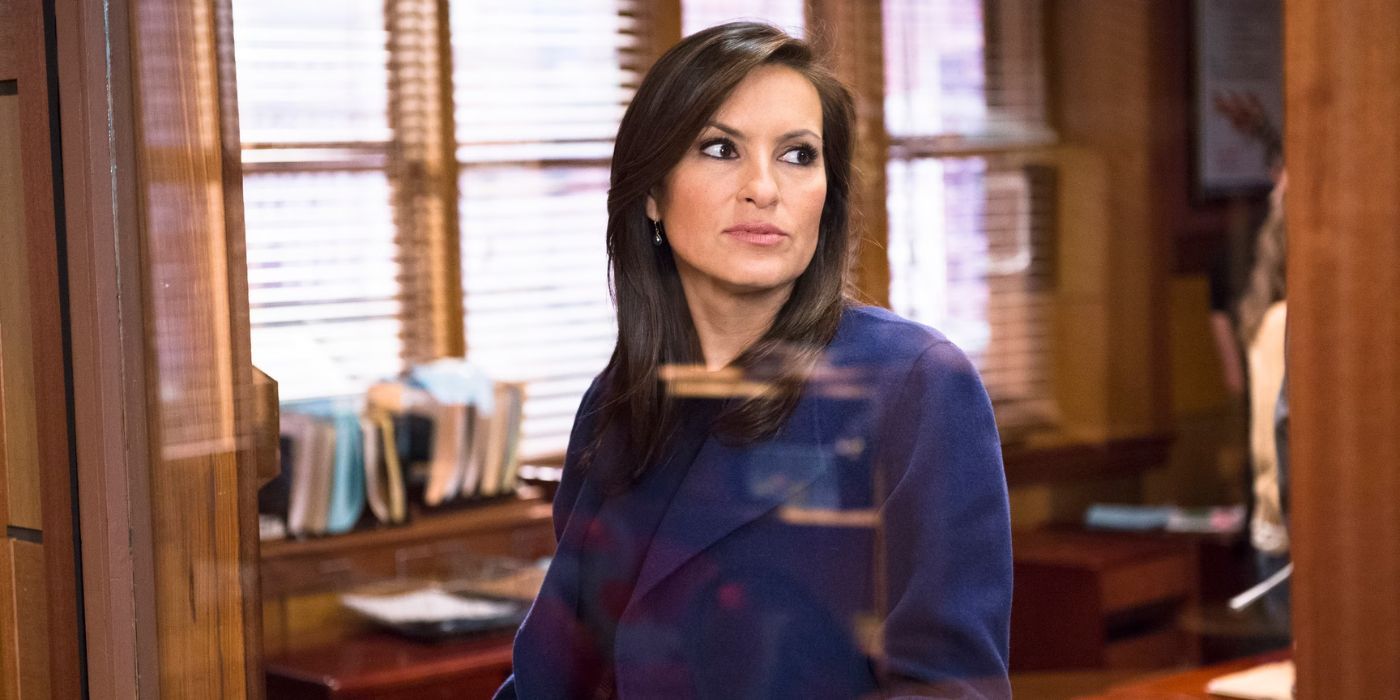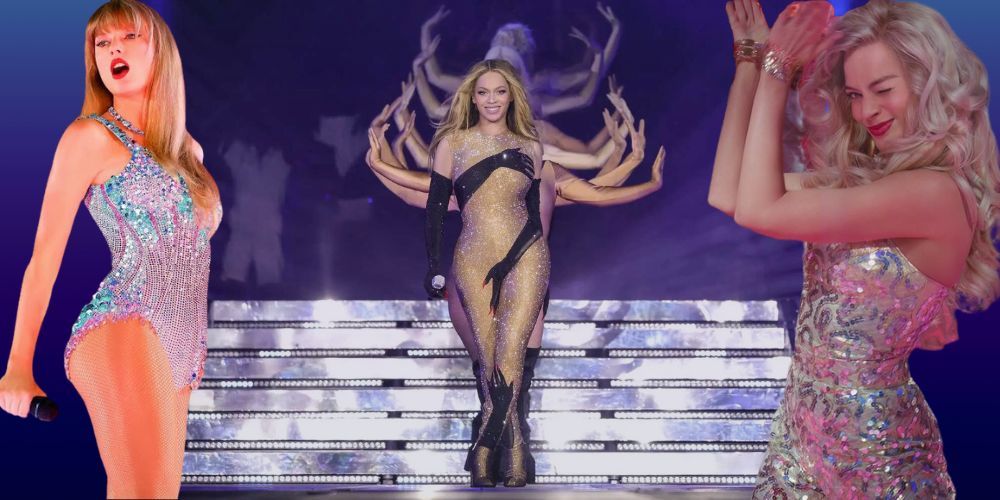Summary
- Female-lead stories in film and television are finally getting the recognition they deserve.
- Women are taking center stage both in front of and behind the camera.
- The success of women in comedy and drama has a positive impact on the industry, opening doors for diverse and innovative storytelling that appeals to a wider audience.
Over the last several years, the entertainment industry has seen an increase in female stories being told by women for women — and for everyone else. This new surge is long overdue, especially in film and television. Audiences have seen women’s stories multiply with films like She Said (2022), Women Talking (2022), and CODA (2021), and even in the release of albums like Olivia Rodrigo’s “Sour” (2021), Taylor Swift’s “Midnights” (2022), and Adele’s “30” (2021) over the last several years. During the 2022–2023 television season, women also finally seemed to be shining on the small screen.
Women have taken center stage in everything from hilarious sitcoms to intensely dramatic shows this last television season. They have been writers, directors, producers, and performers in television shows that have challenged and inspired people all year long. These shows that tell women’s stories, especially told by women themselves, have an important impact on entertainment, both now and for the film and television industry of the future. As audiences see more women writers, directors, producers, and more women-centered stories, the value of the entertainment that is provided to the masses will only be elevated.
When Women Make Us Laugh, We’re All Better
Comedy, a genre that for years was dominated by men, was all about the ladies this year. From HBO’s Hacks and The Sex Lives of College Girls to AppleTV’s The Afterparty and Physical, women were showing off their comedy chops all over the most popular streaming platforms. It was moments like Rebecca Welton (Hannah Waddingham) standing up to a room full of men, reminding them why they truly loved football, in Ted Lasso‘s Season 3, Episode 10, “International Break,” and the powerful series wrap-up of The Marvelous Mrs. Maisel that allowed comedic actresses to shine — and even show off some of their dramatic skills.
On network television, Quinta Brunson’s Abbott Elementary remained a hilarious and authentic hit. Brunson’s writing, producing, and acting made the show particularly special, as did cast members like Lisa Ann Walter, who stole the show as second grade teacher Melissa Schemmenti, and Sheryl Lee Ralph, whose performance as a kindergarten teacher made audiences laugh and cry, and warmed the hearts of everyone watching. Ghosts, which is a remake of the UK series of the same name, was considered a breakout hit in its first season (2021–2022). Starring Rose McIver with a stellar supporting cast, Ghosts was the most-watched comedy led by a woman with 9.1 million viewers and Nielsen’s highest-rated comedy for the 2022–2023 season.
Seeing women succeed in comedy doesn’t just make for great television, it opens the door for comedic storytelling that appeals to more people. Comedy — and drama, too — can get stuck in patterns of storytelling, like when multiple shows in the late ’90s and early ’00s featured heavier men with skinny, “out of their league” wives or when shows return to jokes centered around fat bodies or gender identity or sexuality over and over again. Whether it’s women, people of color, or people with disabilities, the more diversity that can be brought to comedy writing, the less likely sitcoms are to get stuck in story patterns that lose their “funny” if they’re told for too long.
Women Have Taken Over the Dramatic Genre
Some of the most intense dramatic moments in the last season of television have been when audiences have seen mothers fighting for their children, like on HBO’s The Last of Us. In Season 1, Episode 9, “Look for the Light,” the mother of Ellie (Bella Ramsey), Anna (Ashley Johnson, who voiced the character of Ellie in the original video game), fought for her child’s life in her own final moments in a flashback that showed viewers how Ellie likely became immune to the infection that was killing everyone else. On Law & Order: SVU, Olivia Benson (Mariska Hargitay) showed audiences just how fierce a mother can be when her life and the life of her son were threatened in Season 24, Episode 12, “Blood Out” by telling gang leader Oscar Papas, “If you say one more word about my son, it will be your last.” Telling the story of motherhood is something that only women can do, which is part of what makes these performances so powerful.
Hailey Upton (Tracy Spiridakos) and Kim Burgess (Marina Squerciati), two members of Chicago PD‘s Intelligence Team, spent much of this last season showing viewers how the nuances of relationships can impact someone’s work. Shows like Accused, Grey’s Anatomy, and Chicago Fire have put women in positions of power, challenged their mental health, allowed them to fall in love, and so much more. The dramatic performances from women over the last television season have really rested in the bones of audiences who watched them, and not just because they’re so good. The stories being told are ones that many women have been able to identify with, whether they’re moving across the country to make life better for their children, like Meredith Grey (Ellen Pompeo), or dealing with their mental health and C-PTSD, like Saint X‘s Emily Thomas (Alycia Debnam-Carey), who was also trying to solve her sister’s murder. When women see their own stories centered in art, they are more likely to consume it — and a lot of it.
The Barbie, Taylor Swift and Beyoncé Effect
In the last several months, a film release and two worldwide tours have reinforced that women will show up for the stories with which they identify. Greta Gerwig’s Barbie, which became available to purchase and rent on digital platforms on September 12, is the highest-grossing domestic movie of the year. The film has made over $1.38 billion globally, making it Warner Bros.’s biggest global earner ever, and the film surpassed 2017’s Wonder Woman as the biggest-ever female solo-directed film. Critics and viewers are still talking about the film, and the release of the movie, which was originally considered an uncertain gamble, has increased revenue for both the Barbie brand, which went up 60% on Amazon, and for Mattel, which brought in an additional 31% on Amazon.
Taylor Swift’s The Eras Tour and Beyoncé’s Renaissance World Tour have both positively impacted the economies of the cities they’ve gone to, and not just because of people buying tickets. Fans are buying plane tickets, hotel rooms, meals, and anything else that will make their concert experience better. In Washington, DC, Beyoncé paid the Metro $100,000 to stay open for an additional hour after a storm delayed her concert, and her tour has boosted the economy in places like Stockholm, London, and Atlanta, GA. Taylor Swift has donated to food banks on every stop of her tour and exclusively employs local businesses to handle the daily components of running her show. Swift also gave $100,000 bonuses to each of the 55 truck drivers transporting her stage and production equipment across the country and purchased additional carbon credits to offset emissions generated by the trucks and her private plane. The Eras Tour will also be a feature film, premiering October 13th, and is expected to top $100 million during opening weekend.
The productions put on by Taylor Swift and Beyoncé, Greta Gerwig’s Barbie, and the last year of television all affirm the same thing — when women’s stories are told, women show up, and when women show up, it changes the world around them. As the entertainment industry begins to consider the significance of Taylor Swift, Beyoncé, and Barbie, as well as the long-term impacts of the ongoing WGA and SAG-AFTRA strikes, it is in their best interest to put women, people of color, and people with other diverse backgrounds at the forefront of entertainment. After all, the more women’s stories are told by women for women, and the more diverse stories are told by diverse people, the better off all entertainment will be.


